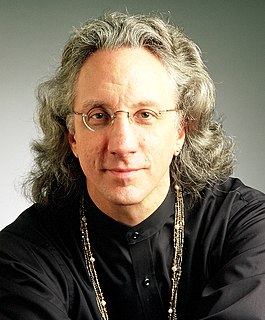A Quote by Chris Wooding
We may seem the weakest and most insignificant of all the Realms, but our strength comes in other ways. We have what no other race has: imagination. Any one of us, even the lowliest, can create worlds within ourselves; we can people them with the most extraordinary creatures, the most amazing inventions, the most incredible things. We can live in those worlds ourselves, if we choose; and in our own worlds, we can be as we want to be. Imagination is as close as we will ever be to godhead, Poison, for in imagination, we can create wonders.
Related Quotes
Henry Corbin creates the world - most of all his examination of the imagination and what the imagination was for him. Some philosophers would think of the imagination as a synthetic ability, how you put different things together. Artists more think of the imagination as creativity. So I really like the way that he presents the imagination as a faculty that allows one to experience worlds that are not exactly physical but are real nonetheless.
There are only two worlds - your world, which is the real world, and other worlds, the fantasy. Worlds like this are worlds of the human imagination: their reality, or lack of reality, is not important. What is important is that they are there. these worlds provide an alternative. Provide an escape. Provide a threat. Provide a dream, and power; provide refuge, and pain. They give your world meaning. They do not exist; and thus they are all that matters.
I think architecture could be understood as the construction of realities, or the construction of worlds. One of the reasons why architects are often attracted to philosophers, partially, has to do with making sense of the world around us as well as the making of worlds, and in our case, the realities we create can be as real as concrete. These kinds of ideas, of wild imagination, go into the question of how you make a world.
Your imagination is the single most important asset you possess. Your imagination is your power to create mental pictures of things that don't exist yet and that you want to bring into being. Your imagination is what you use to shape your future. And so in your own way, you are a prophet. You generate countless predictions every day. Your imagination is the source,tirelessly churning out mental pictures of what you'll be doing in the future.
Most impediments to scientific understanding are conceptual locks, not factual lacks. Most difficult to dislodge are those biases that escape our scrutiny because they seem so obviously, even ineluctably, just. We know ourselves best and tend to view other creatures as mirrors of our own constitution and social arrangements. ( Aristotle , and nearly two millennia of successors, designated the large bee that leads the swarm as a king.
Most of our difficulties, our hopes, and our worries are empty fantasies. Nothing has ever existed except this moment. That's all there is. That's all we are. Yet most human beings spend 50 to 90 percent or more of their time in their imagination, living in fantasy. We think about what has happened to us, what might have happened, how we feel about it, how we should be different, how others should be different, how it's all a shame, and on and on; it's all fantasy, all imagination. Memory is imagination. Every memory that we stick to devastates our life.
Who can keep us from recreating our life as we would like it to be-as it could, and should be? No one but ourselves can keep us from being artists, rather than marching forward like mere consumers, corporate robots, sheep. No one but ourselves can keep us from dancing with life instead of goose-stepping. In every moment recognizing our own creative imagination, the living picture we paint on the canvas of our lives. Everything is imagination. And imagination is freedom, but it can also be conditioning, bondage.
We are all guilty of crime the great crime of not living life to the full. But we are all potentially free. We can stop thinking of what we have failed to do and do whatever lies within our power. What those powers that are in us may be no one has truly dared to imagine. That they are infinite we will realize the day we admit to ourselves that imagination is everything. Imagination is the voice of daring.
Imagination is the Discovering Faculty, pre-eminently ... It is that which feels & discovers what is, the REAL which we see not, which exists not for our senses... Mathematical science shows what is. It is the language of unseen relations between things... Imagination too shows what is ... Hence she is or should be especially cultivated by the truly Scientific, those who wish to enter into the worlds around us!



































